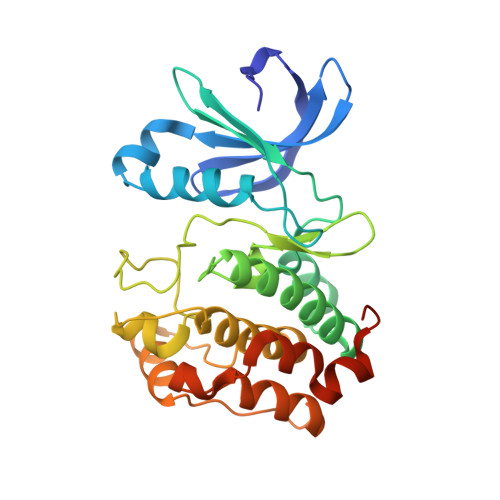Drugging MYCN through an Allosteric Transition in Aurora Kinase A.
Gustafson, W.C., Meyerowitz, J.G., Nekritz, E.A., Chen, J., Benes, C., Charron, E., Simonds, E.F., Seeger, R., Matthay, K.K., Hertz, N.T., Eilers, M., Shokat, K.M., Weiss, W.A.(2014) Cancer Cell 26: 414-427
- PubMed: 25175806
- DOI: https://doi.org/10.1016/j.ccr.2014.07.015
- Primary Citation of Related Structures:
4J8M, 4J8N - PubMed Abstract:
MYC proteins are major drivers of cancer yet are considered undruggable because their DNA binding domains are composed of two extended alpha helices with no apparent surfaces for small-molecule binding. Proteolytic degradation of MYCN protein is regulated in part by a kinase-independent function of Aurora A. We describe a class of inhibitors that disrupts the native conformation of Aurora A and drives the degradation of MYCN protein across MYCN-driven cancers. Comparison of cocrystal structures with structure-activity relationships across multiple inhibitors and chemotypes, coupled with mechanistic studies and biochemical assays, delineates an Aurora A conformation-specific effect on proteolytic degradation of MYCN, rather than simple nanomolar-level inhibition of Aurora A kinase activity.
Organizational Affiliation:
Department of Pediatrics, UCSF Benioff Children's Hospital, University of California, San Francisco, San Francisco, CA 94158, USA; Helen Diller Family Comprehensive Cancer Center, University of California, San Francisco, San Francisco, CA 94158, USA.














